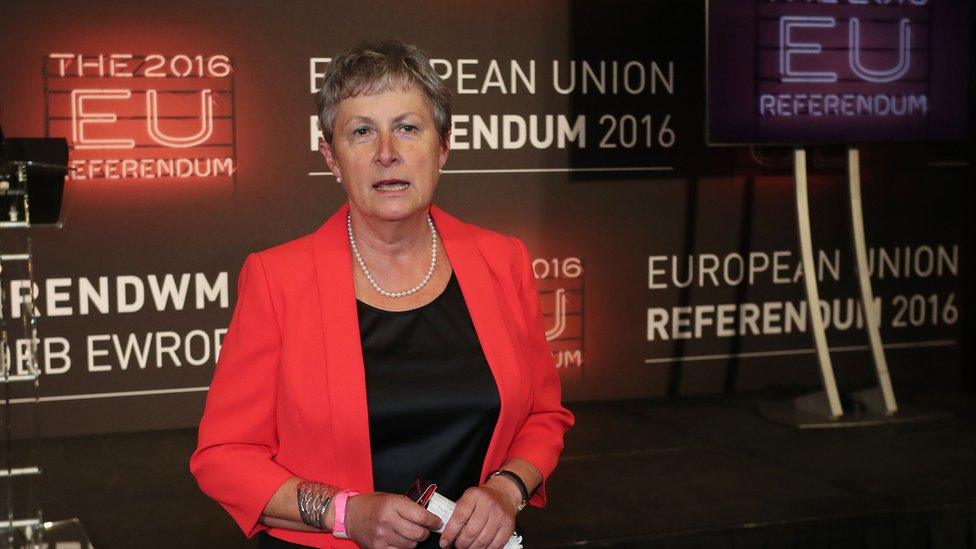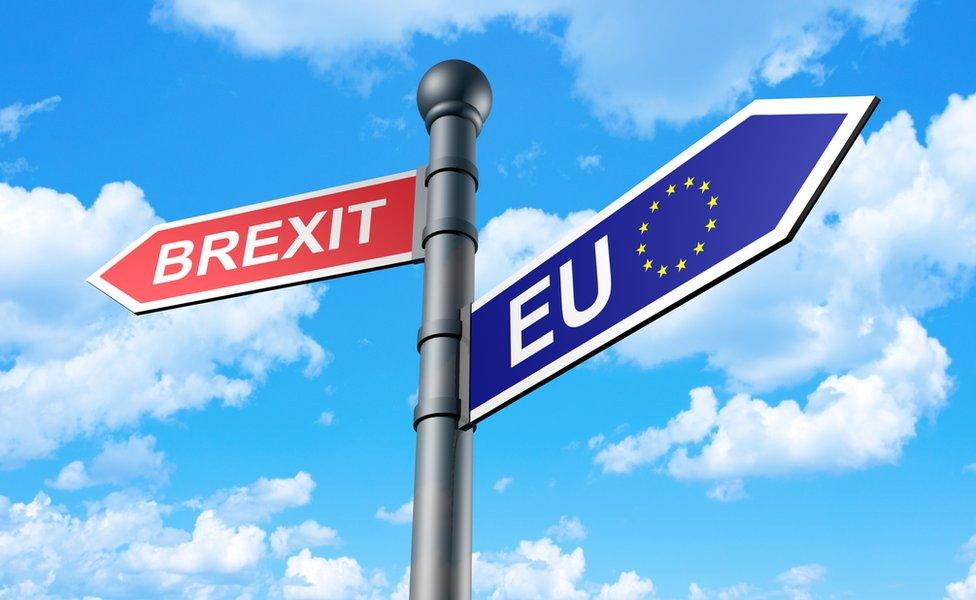Immigration challenge Brexit inquiry chair Gisela Stuart faces
- Published

Gisela Stuart, Labour MP for Edgbaston, is to chair an inquiry into the rights of EU migrants living in the UK
"We will protect EU citizens' rights and then expect the same for UK citizens in the rest of the EU."
That's how the Labour MP for Birmingham Edgbaston Gisela Stuart thinks the government should open its Brexit negotiations with the EU on the thorny question of the rights of EU migrants over here, and those of Brits currently living over there.
As chair of the victorious Vote Leave campaign, Ms Stuart faced repeated questioning during the run-up to the referendum over the rights of about 3.5 million European citizens here in the UK and more than one million UK citizens residing in other EU countries in the event of a Brexit vote.
What may have seemed to some like an abstract debating point before the vote has now become a potentially agonising reality for those millions of people on either side of the looming divide. It is against this challenging background that Ms Stuart has been announced as the chair of a cross-party inquiry for the centre-left research organisation British Future.

Gisela Stuart believes the post-Brexit uncertainty means EU citizens living in the UK are "left in limbo"
She believes the post-Brexit uncertainty means EU citizens living here are "left in limbo".
It will be interesting to see how her compassionate, open-handed approach stands up under the inevitable pressure of hard-nosed political negotiations.
In the immediate aftermath of the referendum, the then Foreign Secretary Philip Hammond found himself in hot water for suggesting Britain could not give up-front guarantees for EU citizens before the talks got under way with our European partners about British citizens living there.
'Wide agreement'
This led to accusations that through no fault of their own, these millions of people were being considered as mere "bargaining chips".
Gisela Stuart told BBC Radio Four's Today programme the UK's decision to leave the political institution of the EU did not mean EU citizens' status could go unprotected.
"There is wide agreement among the public, politicians and business that EU citizens are welcome here and that the government should make clear they can stay," she said.
Pressed on where she thought the cut-off date should be, she said she did not want to pre-empt the findings of her inquiry, which are due to be published in the autumn.

Government ministers have said repeatedly they want to protect EU citizens' status, so long as reciprocal arrangements can be agreed
But she added: "To me instinctively the referendum date was very significant and from then on people knew what was coming."
Government ministers have said repeatedly they want to protect EU citizens' status, so long as reciprocal arrangements can be agreed.
But they say it would be unwise to give full guarantees without a deal for Britons in Europe.
The Brexit Secretary David Davis has said he wants "to secure a generous settlement" for all concerned.
It all adds up to a recipe for mounting tension, not just between the UK and our EU partners, but also here at home where immigration was arguably the most hotly-contested of all the referendum issues.
UKIP rivals
When Theresa May declared just before becoming prime minister that "Brexit means Brexit", it sounded like exactly the sort of absolute black-and-white commitment that would be bound to appeal not just to millions of Leave voters but also to the animal instincts of the Brexiteers in her own party, which remember enjoys a less than comfortable Commons majority of 12.
But politics has a habit of being more about relative practicalities than absolute principles.
Gisela Stuart's inquiry points us towards that more nuanced environment: An element, perhaps, of 'free movement' here, a modicum of 'single market' there.
This is why the rival candidates currently vying to succeed Nigel Farage as UKIP leader are so insistent that their party's raison d'etre, far from being overtaken by the Brexit vote, becomes more important than ever in securing the outcome for which they say the British people have voted.
This defining saga of our times has only just begun.